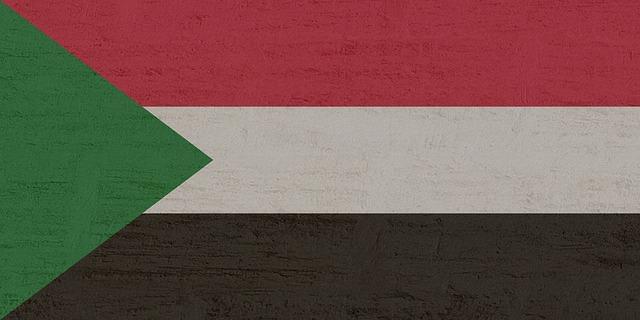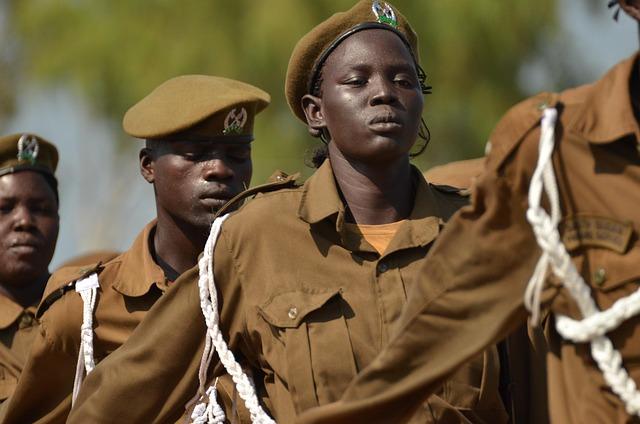In a notable move that has drawn both national and international attention, the government of South Sudan recently announced a three-month shutdown of social media platforms, a decision that underscores the ongoing tensions within the nascent nation. As concerns about national security and political stability continue to mount, authorities have cited the need to curb misinformation and safeguard public order as the primary motivations behind this sweeping measure. This unprecedented action not only raises questions about freedom of expression in South Sudan but also highlights the broader implications for civil society and political discourse in a country still grappling with the aftermath of years of conflict. As citizens adapt to life without their preferred channels of communication, the implications of this internet blackout are poised to ripple through various facets of daily life and governance, prompting urgent calls for dialog and accountability.
impact of the Social Media Shutdown on Freedom of Expression in South Sudan
The recent suspension of social media in South Sudan for three months has raised significant concerns regarding the erosion of freedom of expression in the country.Social media platforms served as vital channels for citizens to engage in dialogue, share information, and express dissenting opinions. This abrupt shutdown has effectively silenced many voices, leading to a pervasive sense of uncertainty about the country’s commitment to democratic practices. Journalists, activists, and ordinary citizens have found themselves stripped of essential tools for communication, leaving them vulnerable to state control over narratives and information dissemination.
The implications of this shutdown extend beyond individual expression; it affects civic engagement and the broader societal discourse. With platforms like Facebook and Twitter unavailable, critical issues including government policy, corruption, and human rights abuses may go unreported and unseen. As an inevitable result, the government faces little accountability, and citizens are deprived of an essential means to mobilize for change. The consequences of this situation can be summarized as follows:
- Restricted information Flow: Access to diverse viewpoints is severely limited.
- Suppressed Dissent: Fear of retribution stifles criticism and protests.
- Weakening Civil Society: Organizations reliant on social media for outreach struggle to function.
- Global Isolation: The lack of communication hinders international awareness of local issues.
| Aspect | Impact |
|---|---|
| Journalism | Reduction in investigative reporting and safety for journalists |
| Public Discourse | Fewer platforms for public discussion and debate |
| Activism | Difficulty in organizing and mobilizing for social change |
| Government Accountability | less scrutiny and critique of governmental actions |

Economic Consequences for Local businesses During the Social Media Ban
The three-month social media ban imposed in South Sudan has led to significant economic ramifications for local businesses, disrupting established marketing channels and customer engagement strategies. Businesses that relied heavily on social media platforms for outreach, product promotions, and customer interactions are now facing a grim reality. The abrupt halt of these digital avenues has forced many to rethink their marketing approaches, leading to a considerable decline in customer reach and consequently, sales. Essential sectors such as retail and hospitality, which utilized social media for real-time feedback and promotions, have been especially hard-hit.
Moreover, the consequences of the ban can be delineated through several critical factors impacting local enterprises:
- Loss of Marketing Efficiency: Traditional marketing methods are less effective, requiring businesses to invest more time and resources.
- Decreased Consumer Interaction: A lack of direct communication channels has left businesses unable to gauge consumer interests and preferences.
- Increased Operational Costs: Without social media, many businesses are diverting funds to option marketing strategies, inflating operational costs.
| Business Type | Impact Level | Adaptation Strategy |
|---|---|---|
| Retail | High | Shift to in-store promotions |
| Hospitality | Medium | Focus on local partnerships |
| E-commerce | severe | Enhance email marketing |

Government Justifications for the Measure and Public Response
The South Sudanese government has backed its controversial decision to shut down social media for three months by citing concerns over national security and public order. Officials argue that the restriction is necessary to curb the spread of misinformation which they claim has been exacerbating tensions and fueling violence in certain regions. They point to recent incidents of unrest where social media played a role in mobilizing crowds, thus creating a dangerous environment during a critical transitional period in the country’s governance. Furthermore, the government insists the measure is temporary, aimed at allowing local authorities to address underlying issues before reinstating these platforms.
In stark contrast, public response has been largely negative, with many citizens expressing outrage and frustration over the sweeping ban. Critics of the measure contend that it infringes on freedom of expression and limits access to vital information, particularly in a country where digital connectivity is increasingly pivotal for grassroots activism and civic engagement. Social media has been utilized as a platform for highlighting social injustices and organizing community support, thereby making its shutdown a significant setback in the fight for democratic rights.many voices on the ground have taken to alternative communication methods, fostering a sense of solidarity and resistance despite the official constraints.

International Reactions to South Sudan’s Digital Censorship
The recent move by the South Sudanese government to impose a three-month shutdown of social media has drawn widespread condemnation from international organizations and foreign governments. human Rights Watch, Amnesty International, and other advocacy groups have labeled the action as a blatant violation of freedom of expression and an attempt to stifle dissent. Activists argue that the blockade disproportionately affects ordinary citizens. Key arguments include:
- Suppression of dissent: The shutdown prevents citizens from voicing their grievances and organizing protests.
- Impact on businesses: local businesses relying on social media for marketing and communication face significant economic challenges.
- Isolation: Citizens are cut off from global conversations and information, exacerbating their isolation amid ongoing conflicts.
International responses have ranged from diplomatic protests to official statements urging the government to restore access. the United Nations issued a statement emphasizing the need for governments to uphold the principles of free expression, while the United States asserted that such actions undermine democracy and fuel instability.the table below summarizes country-specific reactions:
| Country | Reaction | Response Type |
|---|---|---|
| United States | Condemnation of censorship | Official Statement |
| United Kingdom | Call for restoration of services | Diplomatic Note |
| United Nations | Reinforcement of free expression rights | Press Release |

Potential Strategies for mitigating information Blackouts in Future Crises
In response to the alarming frequency of information blackouts during crises, various strategies can be employed to ensure the free flow of information. Decentralized communication platforms stand out as a viable solution, harnessing technologies that allow messaging without relying on traditional internet structures. These platforms can function via mesh networks or satellite links,helping maintain connectivity in areas where state-controlled networks falter. Additionally, fostering digital literacy among the populace empowers individuals to navigate alternative information channels effectively, reducing vulnerability to misinformation during turbulent times.
Governments and civil society organizations can collaborate to develop robust crisis communication plans that emphasize obvious and timely information dissemination. This includes setting up dedicated task forces that monitor information streams and release verified data promptly. Moreover, establishing international partnerships can help safeguard against potential shutdowns by creating global pressure to maintain open communication lines. The inclusion of community feedback mechanisms will also ensure that diverse voices are heard, allowing for a more inclusive approach to crisis management and media resilience.

Recommendations for Enhancing Digital Rights and Connectivity in South Sudan
To promote digital rights and ensure continual connectivity in South Sudan, it is crucial for the government to reconsider its stance on internet restrictions. Establishing clear legal frameworks that protect the freedom of expression online will foster a more democratic and open digital ecosystem. Key actions include:
- Engaging Civil Society: Involve local organizations and communities in dialogues about digital rights.
- Creating Openness: Implement policies that disclose internet shutdowns and their justifications to the public.
- Investing in Infrastructure: Collaborate with international partners to enhance network capabilities, ensuring wider access to reliable internet services.
Furthermore, promoting digital literacy among citizens is essential for empowering individuals to navigate the complexities of the online world safely. Education initiatives should focus on:
- Workshops and Training: Offering community-based programs that teach essential digital skills.
- Awareness Campaigns: Utilizing social media and local media channels to inform people about their digital rights.
- Partnerships with Tech Companies: collaborating with technology firms to provide resources and support for better digital practices.
Final thoughts
the recent decision by the South Sudanese government to impose a three-month shutdown of social media platforms has sparked widespread debate regarding its implications for freedom of expression and the flow of information within the country. While authorities cite concerns over national security and the need to mitigate misinformation,critics argue that such measures infringe upon citizens’ rights and hinder democratic dialogue. As South Sudan navigates its complex socio-political landscape, the impact of this social media blackout will be closely monitored, both domestically and internationally. Stakeholders will need to balance the imperatives of security with the basic democratic principles of transparency and public discourse,as the eyes of the region remain on this latest progress. The effectiveness and long-term consequences of this shutdown may well serve as a critical juncture in South Sudan‚Äôs ongoing struggle for stability and peace.







